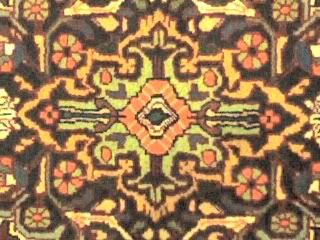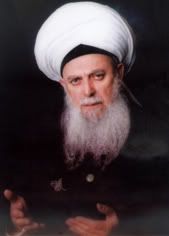For several nights I’ve found difficulty sleeping. I tossed around in bed but never found any sleep until the last of the last third of the night. In my daze I usually turn to reading, sometimes up to 5 different books, each a few sections’ worth, just to motivate my usual drowsiness whenever I read, except that this time it simply did not happen. Normally it is during this time of night that I get very intense in my thoughts, feelings, and emotions, surprisingly quite illuminating, but almost never penning them down. A friend of mine told me to write them. The reason why I couldn’t seem to sleep was not my intense thinking, but I just didn’t write my thoughts down.
 At this night I’ve continued reading Stephen Schwartz’s The Two Faces of Islam – Saudi Fundamentalism and Its Role in Terrorism, after having stalled at the end of his preface few months ago. I remembered how we thought that the title appears rustic, almost freakishly blasphemous as if Islam has got many faces. So The Two Faces of Muslims would accommodate our rather cautious intellect. And so we almost derided the writer for a mistaken assumption that he had penned a callous title, but that only shows we’re guilty of taking it too literally without, most probably, read it as thoroughly as we should have.
At this night I’ve continued reading Stephen Schwartz’s The Two Faces of Islam – Saudi Fundamentalism and Its Role in Terrorism, after having stalled at the end of his preface few months ago. I remembered how we thought that the title appears rustic, almost freakishly blasphemous as if Islam has got many faces. So The Two Faces of Muslims would accommodate our rather cautious intellect. And so we almost derided the writer for a mistaken assumption that he had penned a callous title, but that only shows we’re guilty of taking it too literally without, most probably, read it as thoroughly as we should have.
Does it mean that I support the title? Blasphemous it might seem, but I, at least speaking for myself think I was mistaken. Here is the fine line of the rule of choosing the right words to give a unique face to an ocean of expression. Having read the second chapter, Fortresses and Mountain Paths – 1000 years of Islamic expansion, I could see where Schwartz is going in his book. Here he gave us a run through of the period of the Khulafa al-Rashidin up till the
As a self-obsessed historian, I find some instances of his historical narrative as subjectively Orientalist. Certain assumptions seemed quite ludicrous and one wonders at his sources at times. But seeing it coming from an assertive writer more than a scholarly academic, I could forgive him and wouldn’t see it his shortcomings. Such oversight as this qualifies it a deeper vision in his struggle to challenge peoples’, especially Westerners’ perceptions about what Islam really is against what Muslims themselves thought it to be.
We know this book was written aimed specifically to uncover the Wahhabi movement. As I flipped through the next few chapters he unleashed an array of history and atrocities of the Wahhabis that I’d rather save my words to explain something else. At the end of it he talks about what is there and what is not to save the true face of Islam. But even so, I could get what he’s getting at on the second chapter alone, which was the basis of my writing this at
If we were to take the title as The Two Faces of Muslims, we have to bring Schwartz’s discourse to a different level. After 9/11, there has been a cryptic feeling towards Islam as religion, and Muslims as adherents. Soon after, as said by Khaled Abou El Fadl, more than twenty books of hate and anti-Islam were published in
When John L. Esposito delivered two lectures at Muis in the late 1990s, Darul Arqam as organiser was overwhelmingly criticised and scorned for bringing in a non-Muslim to lecture about Islam to Muslims. Surprisingly, the turnout was more than equally overwhelming, with the array of questioners the longest I would’ve probably seen. One of the things I remember him mentioning was what kind of Islam are Muslims portraying, believing, and holding on to. I recall verbatim a question he raised, “What Islam?”. That was met with scoffs and Ust. Zhulkiflee Ismail, who was then already at Pergas, attempted a very long critique of the whole lecture and towards Darul Arqam, and I realised much later that he was wrong and Esposito was right.
Esposito’s question “What Islam?” is still relevant and is more so now. It is not totally going into the sacrilegious to reflect upon it ourselves rather to believe we already have the answer before he even popped the question. If it was a question of “What Muslim?” perhaps we could have been forgiven due to our human weakness to realise what kind of Muslim we should really be. But that cannot be answered without first realising what kind of Islam we are shaping in our every faculty as we inevitably “represent” the religion to the world.
Schwartz’s attempt was primarily directed to lay the grounds straight and clear. If it were in this region, perhaps The Two Faces of Muslims would have accommodated our discourse, since we more than often tend to direct our attention to “What Muslim?”. This however I believe flawed our discourses and ultimately blinded ourselves to the a priori issue, which is what Schwartz’s attempt is all about. In reading his passages I found him to note beautiful and successful pictures of factual Islamic history shone by the mainstream Sunnis, as against what would have happened if it had been Khawarij, and in our time by Wahhabis. Examples like Wahhabi teachings of hate, terror, theological exclusivity, and its ugly history run contrary to those of peace, tolerance, love, beauty, and adaptability of the mainstream in various timelines. Often he explains it with much firm belief and assertion in the chapters that follow it. Hence the reader sees something wrong with Wahhabism, and what is absolutely right about the real Islam that has been criminally misused as a Wahhabite adjective.
It thus brings me to realise that above all else, and albeit his assertive language in the book, he’s looking for beauty that makes Islam what it is. But also more than that, I feel a sincere and thorough breakthrough to openly debate the Muslims’ own perception of their faith and what practice they devote themselves to. His book, however it was to address the Western reader, instinctively addresses the Muslim reader to re-look and re-discover a meaning that was lost under the Wahhabi spread – that is Mercy inherent in Islam.
Too often have we correctly put terrorism and Wahhabism on the same plane, the latter being the precursor to the former. Maybe we should less seldom neglect the beautiful and merciful aspects of Islam to the whole purpose of creation and its relation to the Divine. What makes a good Muslim does not necessarily depend on his psyche alone, because the psyche requires a means for it to be formed and developed to its ultimate realisation. As they philosophise various realities of existence and purpose of creation, they need a strong foundation stone to hold on to, (or wall) to lean upon. To philosophise on the basis of philosophy, which is creatively humanistic than illuminatively inspired would not suffice as logic only goes as far as the relative mind can perceive, and usually perceives according to its whims and fancies. Which is why a higher set of codes and laws that will honour a potential human illumination that governs life in all aspects, one that is Heavenly, eternal, and originates from the Inevitable Cause of all, will be the only thing that will shape the man to his real purpose and realisation. Thus, is Deen.
We often encounter Deen as religion, but Deen itself means something that is firm, a foundation of sorts, a thing that is brought down low, but also sacredly complete in all aspects, rendering it the only suitable firmhold, a wall to lean against, a total way of life. That a Muslim to reach his destination depends on the Deen, his perception cannot rule over it. It means that the Deen cannot be formed and shaped by his perception as to whether he sees it as good as he wishes, or as bad as he so desires. The fact that the Deen is God-sent, manifested in the form of a distinguished figure from all of His creation upon whom the mission is, Prophet Muhammad s.a.w., and that he will be the shining example of His Divine Will, Beauty, Majesty, and Mercy, will not give room to tolerate any other form of perception except as what He Wills to be represented in His Messenger s.a.w. and those that inherit from him. As the Almighty has Himself declared in his Revelation, the Qur`an, “And We have not sent you (Muhammad) except as a Mercy to all the worlds”.
Allah did not send His Beloved s.a.w. for any other reason, although He has endowed him with all qualities and missionary purposes for humanity, except and only that the Prophet s.a.w. is a manifestation of His Divine Mercy for all the worlds. It inevitably means that having not Willed to send the Prophet s.a.w., there was no need for creation and the Deen, but by His Divine Mercy that would be the only reason why we see what we see and experience what we run into, and till the end of everything it will inevitably be so.
That makes the Deen subject to the Prophet s.a.w. For the Deen could not and will not exist without him manifesting the Almighty’s Mercy and Divine Will for all of creation. Without the Prophet s.a.w. there is no Deen, hence no Islam, for Islam is not only dependent upon the Almighty as the ultimate origin, but also subservient to the person of the Prophet s.a.w. who becomes the Centre it revolves around, taking in his beauty, mercy, and shining example that turns into Light and Guidance. This Light will continuously touch all of creation between the Heavens and the earths including and especially mankind. Those that follow it or at least claim to, must in a sense hold firm to it and submit within it, where the circumference is the Deen that forms his safe boundary, and the Prophetic inheritors – Saints, become the radii for humanity reach the Centre, where from there their realisation is achieved in their solemn return to the presence of The Origin, Allah Almighty, in a final ascension, Mi’raj.
For that Mercy alone must Muslims partake in their perception and realisation of “What Islam?” they are holding on to and presenting to the world. Where peace, love, and tolerance become invaluable universal attributes, the believer has no other choice but to submit and live up to the Mercy embodied in the Deen al-Islam through the example of the most Honoured of creation s.a.w. That requires the unequivocal belief in a Merciful God, a Merciful Messenger s.a.w., that makes the Message of Islam not one that is intolerant, hateful, and terrorising, but above all, Merciful, befitting of raising the believer to his realisation of reality in Dunya and Akhirah.






No comments:
Post a Comment